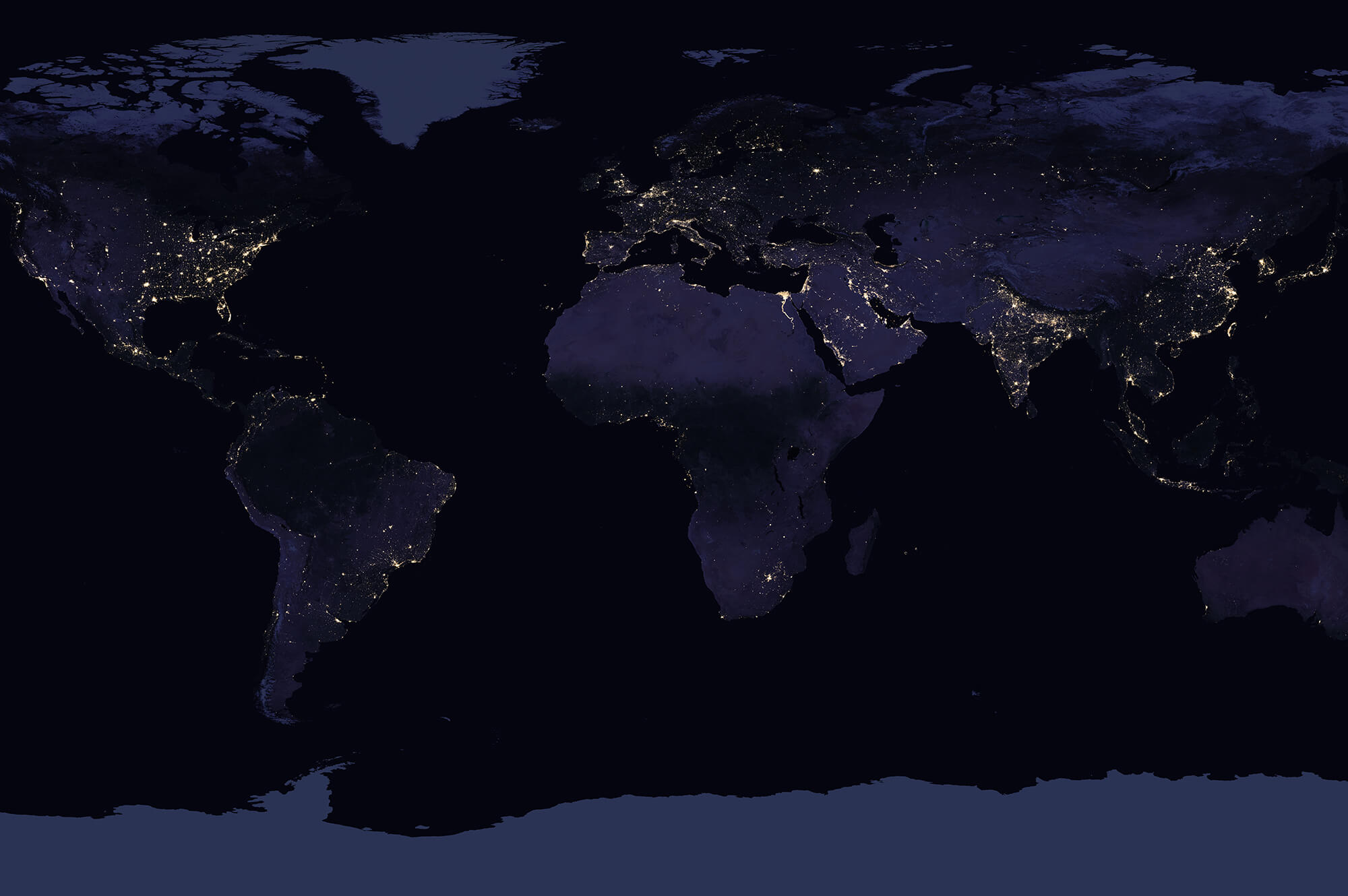Story
Insights into marine light pollution: PML scientists in Ireland for international ALAN summit
27 October 2025
The event is the largest international scientific conference on the impacts of artificial light at night (ALAN).

Earth at night. Image courtesy of NASA.
Plymouth Marine Laboratory (PML) is showcasing its world-leading research on marine light pollution at the 9th International Conference on Artificial Light at Night, taking place this week (October 28-31, 2025) in Westport, Ireland.
The conference brings together researchers and professionals from across the globe to address the growing challenge of artificial light at night (ALAN) and its impacts on ecosystems, human health, and societies. PML scientists will present its findings on how light pollution – and additionally, noise pollution – threatens ocean ecosystems and how the perceptions of coastal communities may be critical in terms of enabling solutions as urbanisation in coastal areas increases.
Professor Tim Smyth, PML’s Director of Science, will present research from the AquaPLAN project on assessing ecological risks from artificial light and noise pollution in marine environments. Dr Océane Marcone, Social Science Researcher at PML, will share findings from work examining urban beach users’ preferences on ALAN mitigation solutions, including research conducted in Chile as part of the NERC FOCUS project.
Professor Smyth said: “Light pollution poses a significant and growing threat to marine ecosystems, disrupting fundamental biological processes from coral reproduction to the behaviour of crucial species like copepods.
As coastal areas worldwide become more populated and industrialised we’re discovering how multiple stressors such as ALAN and noise pollution pose a threat to marine species and habitats.”
Dr Océane Marcone added: “Understanding the human dimension of light pollution is crucial for developing effective solutions. Our social science research explores how coastal communities perceive artificial light and the level of acceptability of different mitigation solutions, providing essential insights that can inform both policy and practice.
By working with urban beach users and communities internationally, we’re seeking to bridge the gap between scientific evidence and real-world action.”
PML’s research combines extensive expertise in ocean colour satellite Earth observation, social science, and ecological responses. As a founding member of the Global Ocean Artificial Light at Night Network (GOALANN) alongside the University of Plymouth, PML works collaboratively with international partners to improve knowledge and awareness of marine light pollution and its management.
The ALAN conference – which is supported by Dark Sky Ireland and organised by an international steering committee of scientists from Germany, Spain, the United States, Switzerland, Canada, and Austria – provides an important platform for advancing interdisciplinary approaches to light pollution, covering biology and ecology, governance and regulation, health, measurement and modelling, social sciences and humanities, and technology and design.
Related information
For more information about the event please visit the 9th International Conference on Artificial Light at Night website
Find out more about PML’s research into artificial light at night (ALAN)
